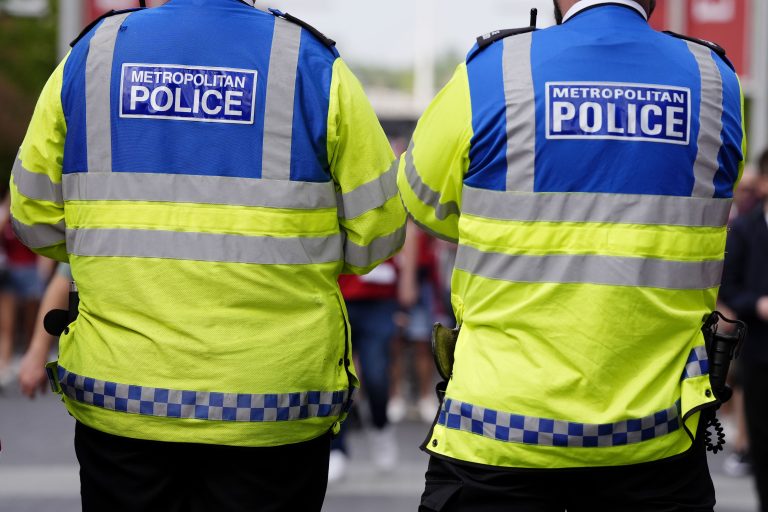Dissidents in UK warn of rising Iran threat amid alleged plot targeting Israeli embassy
Iranian dissidents based in the UK have sounded the alarm over what they describe as an increasingly “aggressive and dangerous” stance by Tehran abroad, following revelations that the Israeli embassy in London may have been the intended target of a significant terror plot.
Four Iranian nationals are currently in custody, being interrogated by counter-terrorism police in connection with a suspected plan to strike what authorities have so far only labeled as a “specific premises.”
However, several well-placed sources have indicated that the Israeli embassy in Kensington, west London, was the location at the center of the investigation. An embassy representative declined to comment when approached on Thursday.
The arrests, which took place last Saturday, were the result of a joint operation between the Metropolitan Police and MI5, which Security Minister Dan Jarvis described in Parliament as “one of the most significant counter-terror and counter-espionage efforts in recent memory.”
Three additional Iranian men are also being questioned under suspicion of involvement in activities linked to a foreign state—understood to be the Islamic Republic of Iran.
Responding to the reports, Iran’s Deputy Foreign Minister Seyed Abbas Araghchi denied any official involvement in the alleged plot targeting the Israeli diplomatic mission.
Posting on X on Wednesday night, Araghchi stated: “Iran unequivocally rejects any suggestion of involvement and notes that no formal allegations have been communicated through diplomatic channels. We have offered to assist any legitimate investigation, but the timing and lack of communication raise questions.”
The developments have heightened concern among Iranian opposition figures living in Britain, many of whom fear they could be targeted as Tehran escalates its operations overseas.
Vahid Beheshti, a British-Iranian activist who has held a two-year protest vigil outside the Foreign Office, said he was informed by law enforcement three weeks ago that he might be at risk.
He recounted a four-hour meeting with counter-terror officers at a Westminster police station last month, where he was advised to strengthen his personal security, including purchasing fire blankets and extinguishers in case of a possible firebomb attack.
“This was the first such meeting I’ve had with them in a year,” Beheshti said. “They didn’t say exactly what prompted the alert, but they warned me that as the regime feels more threatened, it becomes more dangerous.”
Ellie Borhan, another British-Iranian who was assaulted during a 2023 protest against the Iranian regime in London, warned of ongoing efforts by Tehran to radicalize individuals abroad.
“They use misinformation and ideological manipulation to turn people into tools of the regime,” she said. “The British government must take this seriously before people no longer feel safe in their own country.”
Richard Pater, who heads the Britain Israel Communications and Research Centre, said the suspected plot against the Israeli embassy was “deeply alarming, though unfortunately not unexpected.”
There have been renewed calls for the UK to officially designate Iran’s Islamic Revolutionary Guard Corps (IRGC) as a terrorist organization, a move already taken by several other Western nations.
Labour had previously committed to banning the IRGC before the last general election but ultimately left the pledge out of its final manifesto. Some government officials reportedly worry that such a move would provoke Iran to sever diplomatic relations with Britain, cutting off a vital communication channel during international crises.
A Metropolitan Police spokesperson said: “We don’t comment on individual security arrangements. However, anyone with concerns about their safety should contact police so officers can provide advice or take protective measures as needed. If someone believes they are in immediate danger, they should dial 999.”

